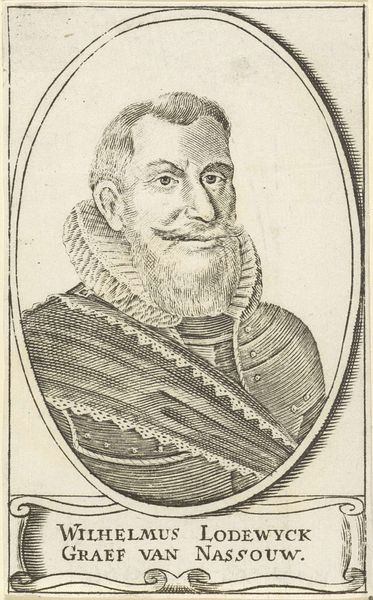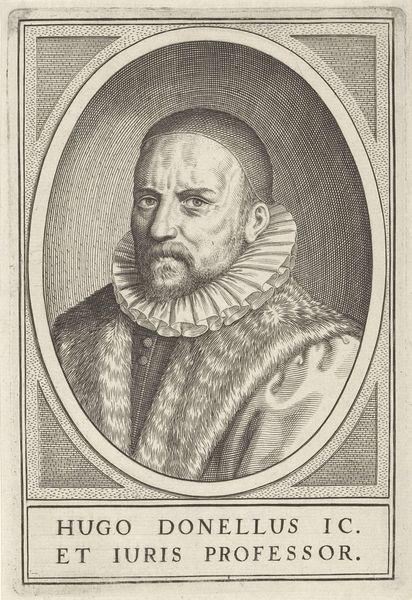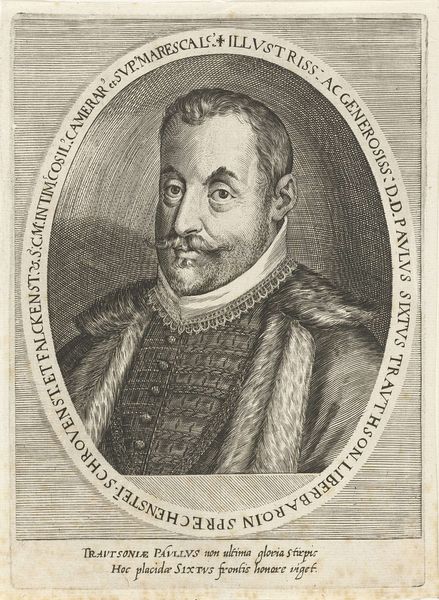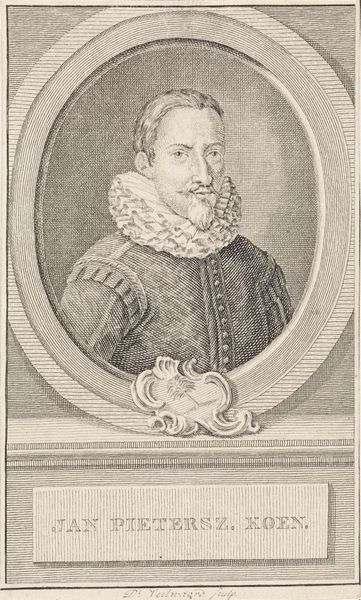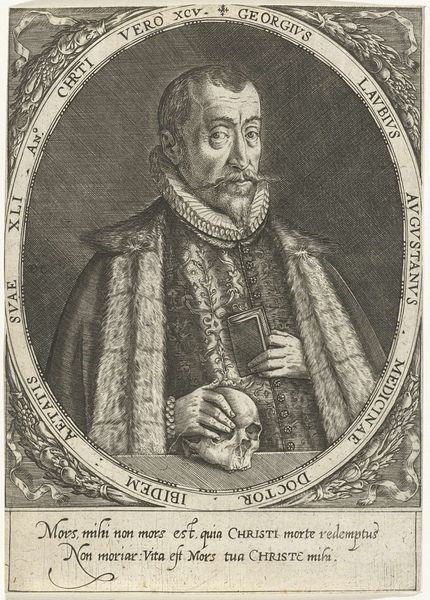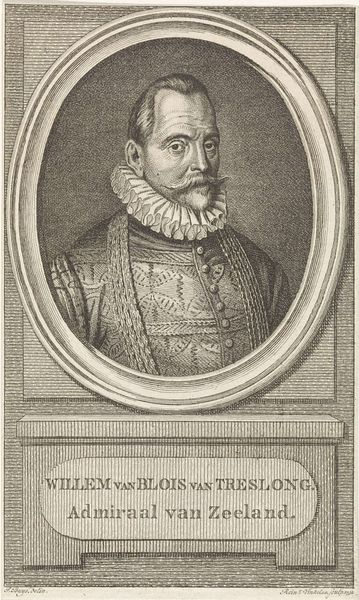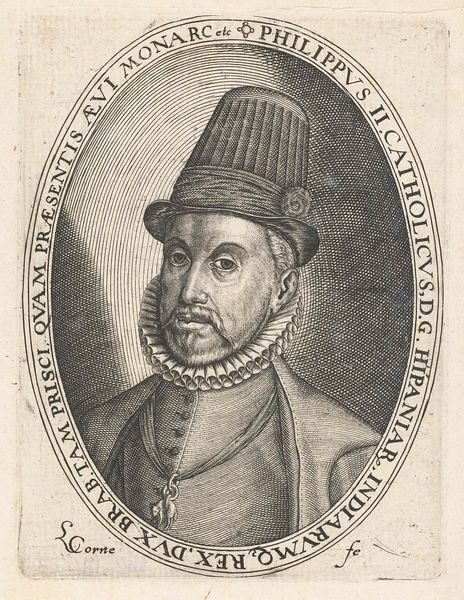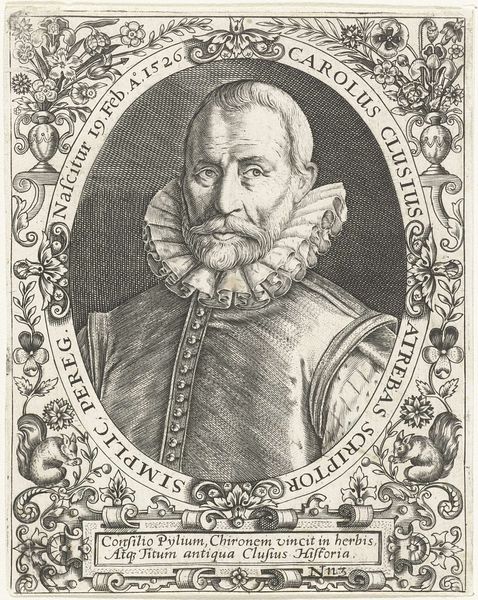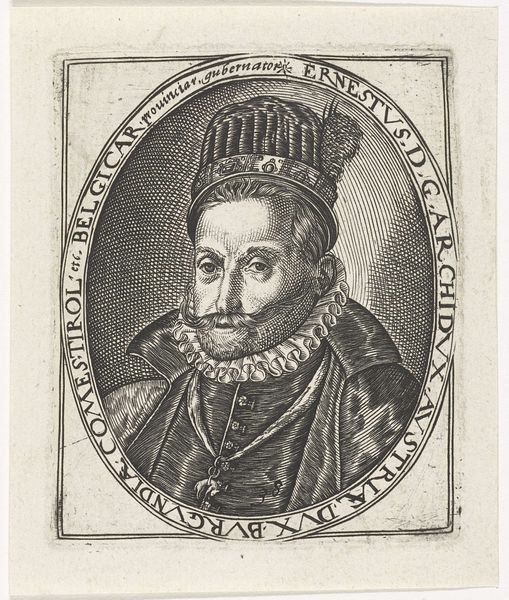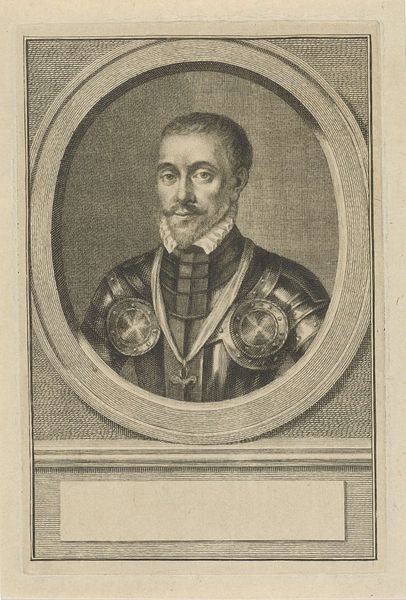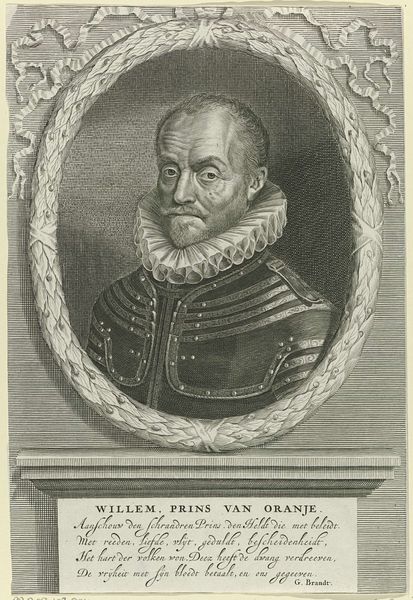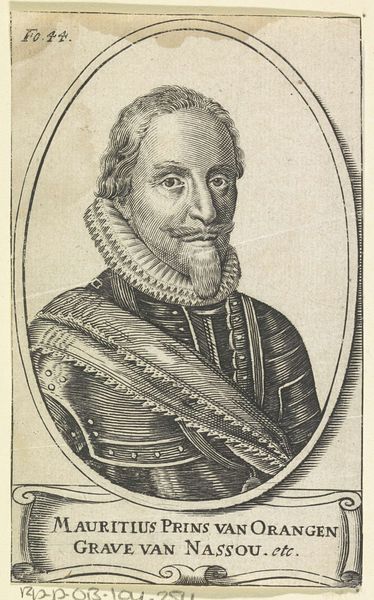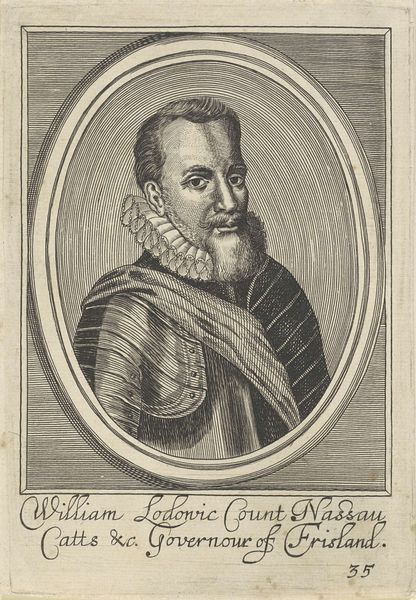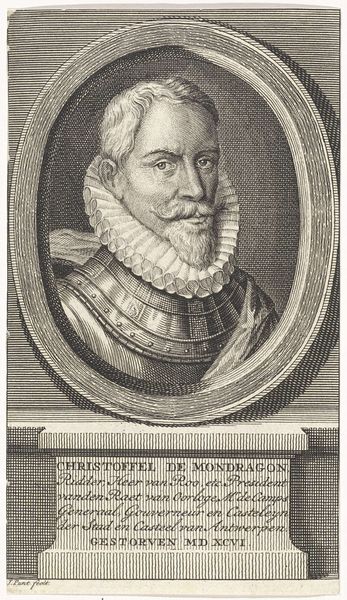
print, engraving
#
portrait
#
baroque
# print
#
history-painting
#
engraving
Dimensions: height 142 mm, width 78 mm
Copyright: Rijks Museum: Open Domain
This portrait of Maurits, Prince of Orange, was made as an engraving by an anonymous artist, and today it resides here in the Rijksmuseum. Engravings like this one played a crucial role in shaping public perception and solidifying power during the Dutch Golden Age. The crisp lines and formal composition speak to a culture deeply invested in order and hierarchy. Consider the subject: Maurits, a key figure in the Dutch Revolt against Spanish rule. This image would have circulated widely, reinforcing his authority and the legitimacy of the House of Orange. The elaborate ruff and sash weren't just fashion; they were potent symbols of status and allegiance. To understand this image fully, we would need to delve into the economic structures of the time, the political tensions between the Dutch Republic and other European powers, and the institutional history of printmaking itself. Who commissioned it? How was it distributed? These are the kinds of questions that social historians ask to unearth the complex layers of meaning embedded within seemingly simple portraits like this one.
Comments
No comments
Be the first to comment and join the conversation on the ultimate creative platform.
